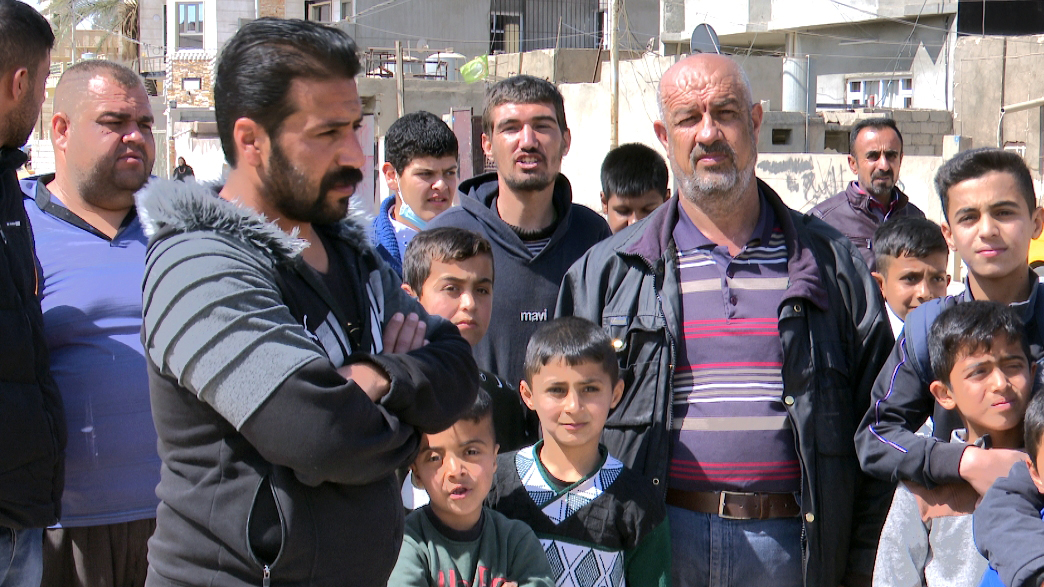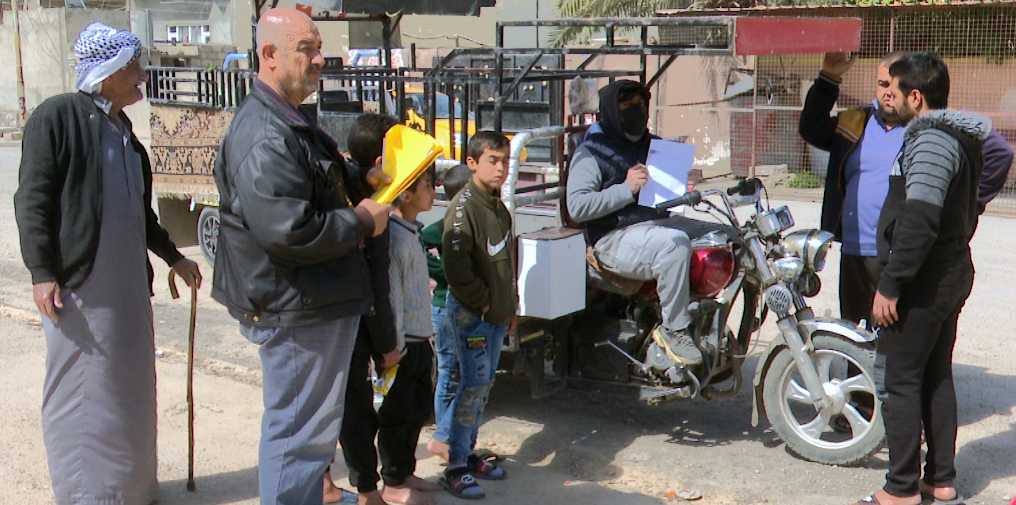Dhia Jalil was in a dire situation, so he acquiesced to the demands of a group of people claiming to be working for a charity organization and gave him $100 and a 50-kg bag of flour, and in return he handed them all his official documents.
This happened seven years ago, but its consequences have appeared now. It was found that unknown persons got a 47 million Iraqi dinars IQD ($38,000) loan from a bank, using documents and the fingerprints of Jalil.
“We did not know that weak people withdrew money from the bank using our names and official documents, and then ran away,” Jalil desperately told KirkukNow.
Jalil resides in Al-Uruba neighborhood of Kirkuk city. About 30 other people in the same neighborhood were "tricked" by people claimed to work for a non-profit organization used their official documents to get loans from the bank.
Jalil makes his family living by trading second-hand household items with his cargo tricycle. "How will I be able to pay that big amount with what I earn.... I live in a house for rent, I didn't receive that amount and didn't see it... I can't pay back even a quarter of that amount."
Years after that incident, a number of government banks in Kirkuk sent notifications to citizens about the loans they took from those banks and asked to set a date for returning those loans. In case of defaulting, they will be subject to legal accountability.
According to KirkukNow follow-up, the operation took place in the Al-Orouba neighborhood in central Kirkuk only. Some of the victims were borrowed 25 million dinars or more in their names.
they borrowed in the name of each of us 18 million dinars
The oil rich-city of Kirkuk, located 238 kilometers north of Baghdad, is an ethnically mixed province for 1.7 million Kurds, Sunni and Shiite Arabs, and Turkmens. It has long been at the center of disputed territories between Baghdad and Erbil that extends from Khanaqin district of Diyala province in the east on the border with Iran via Kirkuk up to Shingal (Sinjar) district of Ninewa province in the west on the border with Syria.
Following the military defeat of the Islamic State of Iraq and Syria ISIS, discord over security arrangements, public services, and the lack of a unified administration in the disputed territories, have plagued victims and survivors.
Currently, Iraqi army, local and federal police, Brigade 61 of Special Forces along with Shiite paramilitary of Popular Mobilization Forces PMF, are under Kirkuk joint operations’ command, an umbrella for the security forces running the security of Kirkuk province.

Qahtan Nuraddin, a resident of al-Urubah neighborhood, told KirkukNow, "We are a family of six, and they borrowed in the name of each of us 18 million dinars."
"These people said that they work for a charity organization. They spoke in both Kurdish and Arabic. They said that they came to distribute aid to us and asked us for copies of our official documents and records and to put our fingerprint on the aid form," says Nuraddin.
According to KirkukNow follow-up, the people who visited the Al-Urubah neighborhood did not mention the name of any non-governmental organization, and the residents of the neighborhood did not ask them to show their identities or other information.
Ahmed Abboud became in debt of a large amount of money for the $100 he received. "They put me in a whirl that is difficult for me to get out of. I was exposed to a disaster because of what happened, because my wife had a heart attack and died as a result of what happened."
"It is impossible for me to pay that amount," Aboud stressed.
The security authorities are aware of the case and are in the process of investigating it.
The spokesman for the Kirkuk Police Command, Lt. Col. Amer Shwani, said they were informed about 2-3 fraud gangs in the city, and the police are chasing them closely as lately managed to arrest two people involved in fraud."
lately managed to arrest two people involved in fraud
Shwani called on citizens to be "more careful and not to believe people who visit neighborhoods under the name of humanitarian and charitable institutions and who harm people through fraud and deception."
Residents of Al-Orouba neighborhood sent a message to the government, asking it to address their problem by arresting those accused of the "scam" or exempting them from paying the loans they owe.
Hazar Kakai, a lawyer and civic activist in Kirkuk, believes, "Citizens should file lawsuits and inform the courts as soon as possible. It is better to inform the Integrity Commission as well about the case, because what happened is a crime punishable by law under Article 456 of the Iraqi Penal Code."
The article states that “Whoever achieves the receipt or transfer of possession of movable property owned by others to himself or to another person, by one of the following means: Using fraudulent methods, by taking a false name or an incorrect capacity, or reporting a false order about a specific fact, or deceive someone to sign a document, faces imprisonment.”





